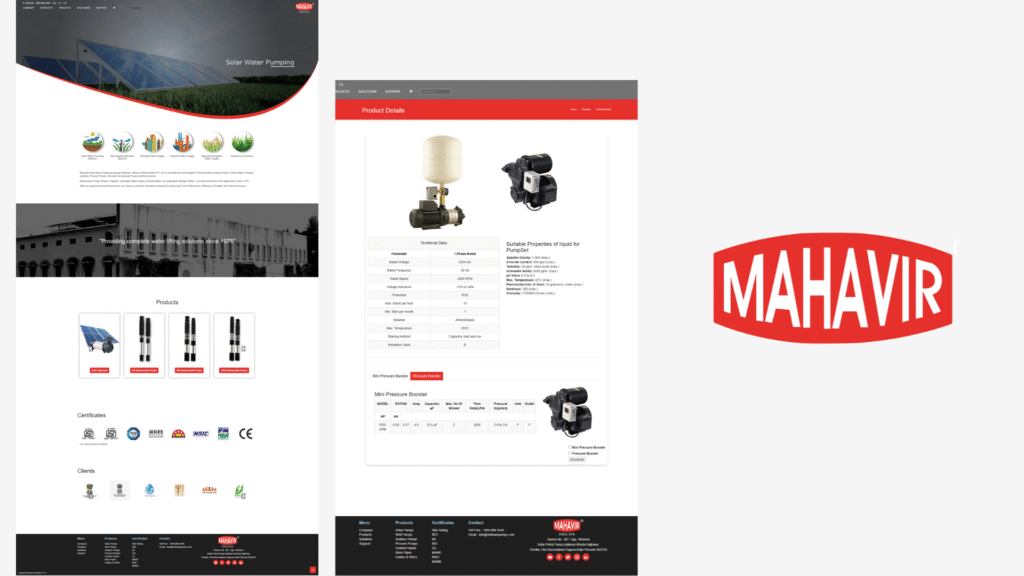Complete 2025 Guide: Build Your eCommerce Store with WooCommerce
In the rapidly evolving world of online retail, having a robust, feature-rich, and customizable eCommerce platform is essential for success. WooCommerce, an official WordPress plugin, continues to dominate as one of the most popular solutions for entrepreneurs and businesses aiming to establish or expand their online presence in 2025. This comprehensive guide walks you through every step necessary to build, customize, and grow a successful WooCommerce-powered eCommerce store.
Why Choose WooCommerce for Your eCommerce Store in 2025?
WooCommerce offers a perfect blend of flexibility, scalability, and ease of use. As a free plugin integrated directly with WordPress, it provides access to thousands of themes and plugins, making it highly customizable. Here are key reasons why WooCommerce remains the top choice in 2025:
- Open Source & Free: Start without costly licenses.
- Extensive Customization: Thousands of themes and plugins for tailored store design and functionality.
- Strong Community & Support: Large developer community ensures continuous improvements and support.
- SEO-Friendly: Built on WordPress, the world’s leading SEO platform.
- Scalability: Suitable for small startups and large enterprises alike.
Prerequisites for Building Your WooCommerce Store
1. Domain Name and Hosting
Choose a memorable domain name that reflects your brand. Opt for reliable hosting providers that specialize in WordPress hosting, such as SiteGround, Bluehost, or WP Engine, offering excellent uptime and support.
2. WordPress Installation
Most hosting providers offer one-click WordPress installation, simplifying the setup process. Ensure your hosting environment meets WooCommerce requirements (PHP version 7.4+, MySQL 5.6+, or MariaDB).
3. SSL Certificate
A secure SSL certificate is essential for protecting customer data and improving trust. Many hosting providers include free SSL certificates via Let’s Encrypt.
Step-by-Step Guide to Building Your WooCommerce Store in 2025
1. Installing WordPress and WooCommerce
/** How to install WooCommerce on WordPress **/ 1. Log in to your WordPress admin dashboard. 2. Navigate to Plugins > Add New. 3. Search for "WooCommerce". 4. Click "Install Now" and activate the plugin. 5. Follow the on-screen setup wizard to configure your store.
2. Choosing the Right WooCommerce Theme
Select a responsive, fast, and visually appealing theme aligned with your brand. Popular choices include Astra, OceanWP, and Storefront (WooCommerce’s official theme). You can customize themes via the WordPress Customizer or page builders like Elementor or Beaver Builder.
3. Configuring Basic WooCommerce Settings
Set your store details, currency, tax, and shipping options through WooCommerce > Settings. Ensure that these configurations reflect your business model and target audience.
4. Adding Products
Navigate to Products > Add New. Fill in product title, description, images, pricing, SKU, and inventory details. Organize products into categories and tags for better navigation.
5. Setting Up Payment Gateways
WooCommerce supports multiple payment options such as PayPal, Stripe, credit cards, and more. Configure them under WooCommerce > Settings > Payments. Test transactions to ensure smooth checkout experiences.
6. Managing Shipping & Taxes
Create shipping zones, rates, and classes under WooCommerce > Settings > Shipping. Set up tax rates according to your local regulations or international standards.
7. Enhancing Store Functionality with Plugins
Expand your store’s capabilities with plugins for SEO, security, marketing, and customer engagement:
- SEO: Yoast SEO for WordPress
- Security: Wordfence Security
- Marketing: Mailchimp for WooCommerce, Facebook for WooCommerce
- Performance: W3 Total Cache or WP Rocket
Design & Customization Tips for 2025
Responsive & Mobile-First Design
Ensure your store is fully responsive across devices. Use mobile-optimized themes and test performance on smartphones and tablets.
Personalization & User Experience
Implement personalized recommendations, simplified navigation, and fast-loading pages. Use plugins like WooCommerce Product Recommendation to enhance shopping experience.
Accessible & Inclusive Design
Follow accessibility standards to accommodate all users, including those with disabilities. Use clear fonts, color contrast, and descriptive alt texts.
Optimizing for SEO & Marketing in 2025
1. On-Page SEO Strategies
Optimize product titles, descriptions, images, and meta tags. Use keywords naturally and create informative content, including blog posts and guides.
2. Content Marketing & Blogging
Maintain an active blog to attract organic traffic. Share industry news, how-to guides, and product stories. Use internal linking to boost SEO.
3. Email & Social Media Campaigns
Grow your email list with opt-in offers and run regular campaigns using tools like Mailchimp or Klaviyo. Engage audiences on platforms like Facebook, Instagram, and TikTok.
4. Paid Advertising & Retargeting
Utilize Google Ads, Facebook Ads, and retargeting strategies to reach potential customers effectively.
Ensuring Security & Compliance in 2025
Implement SSL, regular backups, and security plugins. Stay compliant with data privacy regulations such as GDPR and CCPA by creating clear privacy policies and obtaining necessary consents.
Analyzing & Growing Your Store
1. Monitoring Analytics
Use WooCommerce Reports, Google Analytics, and other tools to track sales, customer behavior, and website performance.
2. Customer Feedback & Support
Engage with customers through live chat, surveys, and reviews. Use feedback to improve user experience and product offerings.
3. Scaling Your Business
Introduce new products, expand to international markets, and automate order fulfillment with tools like ShipStation or WooCommerce Shipping.
Common Challenges & How to Overcome Them
- Slow Website Speed: Optimize images, utilize caching, and choose fast hosting.
- Cart Abandonment: Use abandonment recovery plugins, offer discounts, and streamline checkout.
- Security Threats: Keep plugins and themes updated, implement security measures, and perform regular scans.
Final Tips for a Successful WooCommerce Store in 2025
- Prioritize user experience and ease of navigation.
- Invest in SEO and marketing to grow traffic organically.
- Stay updated with WooCommerce and WordPress developments.
- Leverage analytics to make data-driven decisions.
- Be adaptable and ready to incorporate new trends and technologies.
Conclusion
Building a successful eCommerce store with WooCommerce in 2025 is entirely achievable with the right planning, tools, and strategies. This platform’s flexibility allows entrepreneurs to craft unique shopping experiences tailored to their target audience. By following this comprehensive guide, you’ll be well-equipped to launch, optimize, and scale your online store effectively, ensuring sustained growth and profitability.
Start today by assessing your business goals, choosing the right hosting, and installing WooCommerce. Continuous learning and adaptation will keep your store competitive in the ever-evolving digital marketplace. Happy selling!



